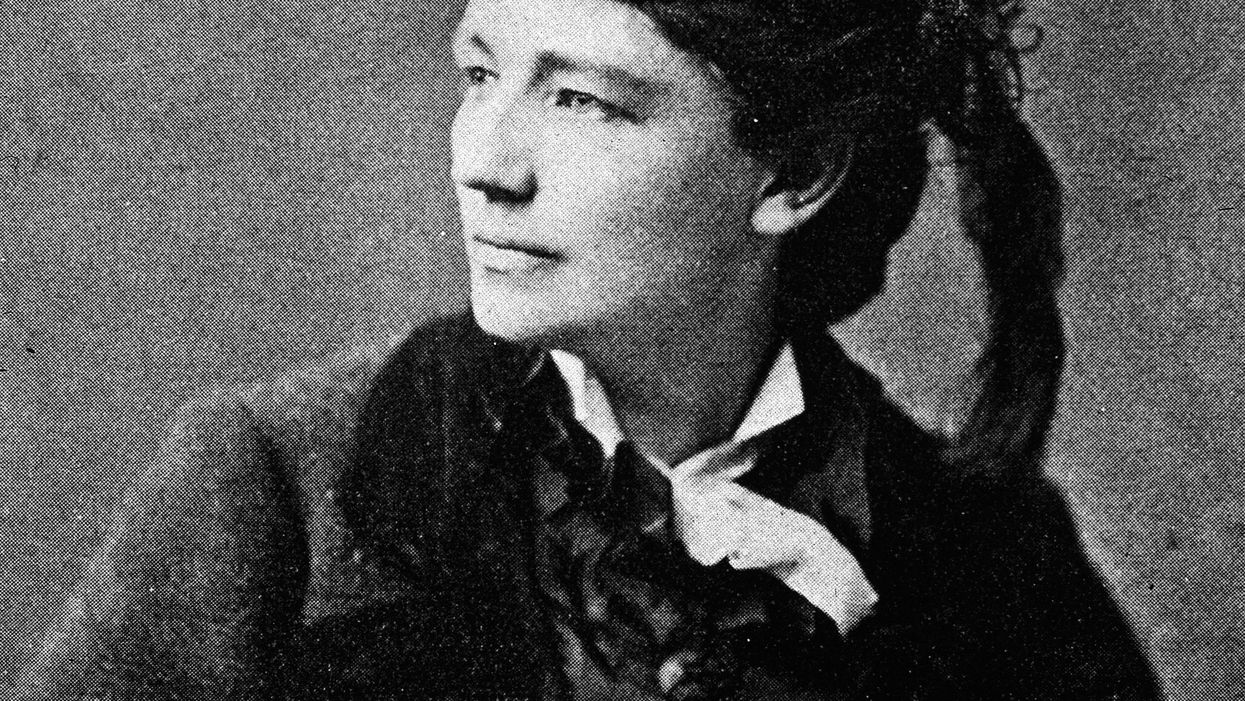Molineaux is the co-founder and executive director of Bridge Alliance, a coalition of more than 90 civic reform groups. (Disclosure: The Bridge Alliance Education Fund is a funder of The Fulcrum.)
This is the third in a series of opinion pieces we are publishing during Women's History Month to recognize the contributions of women to the democracy reform movement.
Victoria Woodhull was the first woman to run for president in 1872, with Frederick Douglass as her running mate. While disparaged and trivialized at the time, she was relentless in pursuing equal rights and labor reforms. Many advances made in the early 20th century can be traced back to Woodhull's "radical ideas" from the 19th century.
Our lesson: Never underestimate the ability of women to transform our culture. One of the greatest strengths of women is transmuting their experience into something for the good of our larger human family.
There are many women who inspire with their courage, tenacity and intelligence. Here are four of them.
As she says in the preface of her book, "Independents Rising," politics is in Salit's blood. Her career as an independent began before it was cool in the 1970s. In fact, it was not talked about in polite company, but she did anyway. She has campaigned for independent candidates and fought for ballot access, voting rights and redistricting in more places than people can imagine. And now with 42 percent of registered voters not affiliated with a party, Salit leads Independent Voting with strategic vision and tactical street smarts that is bringing about a better America where we are all authentically empowered to be citizens, regardless of our party or lack of one.
Zaneeta Daver
Now the COO of Civic Nation, Daver is an educator, systems analyst and thinker with a side of curriculum development. In other words, she likes to be in the background, contributing with her entrepreneurial style and whole-human approach. Her career spans higher education and consulting, thinking about how we can become the multicultural society we claim to be. Daver has been a thinking partner in creating our shared future, influencing the work of Bridge Alliance (and therefore 100 organizations) in an understated or subtle way. Daver is an example of a powerful woman who doesn't need the spotlight to make a difference.
Gehl was CEO of her family's Gehl Foods Inc. when she became concerned about the state of our country and used her business expertise to analyze what was wrong and how our politics could be better. This led to her researching and writing the 2017 report"Why Competition in the Politics Industry is Failing America" with Michael Porter. This historic look at politics through a business lens is the undergirding to many of the democratic reforms being advanced today — including single-ballot, top-five primaries with ranked-choice voting general elections. Her insight into politics as an industry with unhealthy competition is a new way of viewing our system with a plan to transform it.
Mary Stanley
Stanley was a mentor and often gruff friend to many women who ran for office for 47 years. She was a relentless supporter and helped get dozens of women elected. In 1971, she participated as a Republican in the formation of National Women's Political Caucus along with Gloria Steinheim, Bella Abzug and others. She changed parties after the GOP failed to support ratification of the Equal Rights Amendment and removed reproductive rights from its platform, two issues she saw as essential for women's equality. Stanley was in constant contact with her elected representatives, building a relationship with each, one postcard, letter, phone call and visit at a time. She ran fundraisers, offered endorsements and was relentless in her advocacy for more women in elected office. The many she met selling buttons and bumper stickers at political events did not know she donated all profits to female candidates. She held fundraisers for Nancy Pelosi, Dianne Feinstein (who sent her birthday presents each year) and Karen Humphrey, the first female mayor of Fresno, Calif. Many women in office today owe their start to Stanley. She would be so proud of them.
What is the legacy we would leave for our descendants? Let's map the path and start. Together and with perseverance, we can create the future our children and grandchildren will inherit and write about.




















Trump & Hegseth gave Mark Kelly a huge 2028 gift